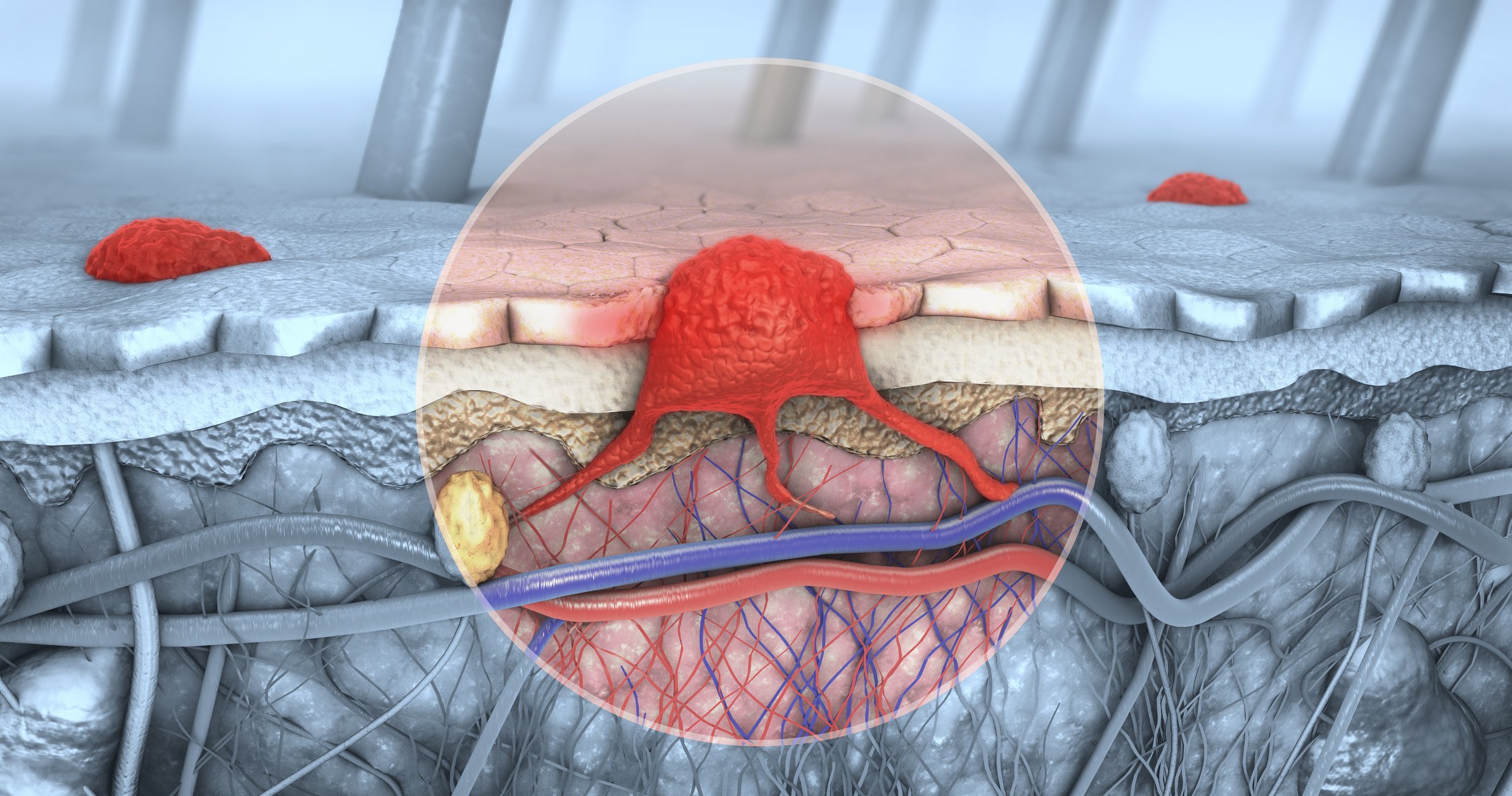This article is the German abstract of a study [1] published in the journal International Clinical Psychopharmacology. The authors pooled the compatibility data from four studies and evaluated them. They concluded that Hypericum extract WS 5570 had a significantly lower incidence of adverse events than SSRIs.
SSRIs have largely replaced tricyclic antidepressants in the treatment of depression because of their frequent and unpleasant side effects. However, a relatively large number of side effects are also observed with these antidepressants. Therefore, some patients prefer treatment with extracts of Hypericum perforatum (St. John’s wort), whose efficacy and tolerability in the treatment of mild to moderate major depression have been documented in numerous clinical trials [2].
The study
The authors of the present study aimed to compare the tolerability and safety of St. John’s wort extract WS 5570 with placebo, paroxetine, and other SSRIs. WS 5570 is the active ingredient of the preparation Neuroplant® (In Switzerland: Hyperiplant® Rx, Schwabe Pharma AG). Each tablet contains 600 mg Hypericum perforatum dry extract (drug-extract ratio [DEV] 3-7: 1) with a defined amount of 3-6% hyperforin and 0.1-0.3% hypericin.
Data from three double-blind, randomized, controlled clinical trials and the acute phase of a long-term study examining the efficacy and tolerability of WS 5570 were pooled [3–6].
Szegedi et al. [3] compared the following treatments in patients with moderate or severe depression (HAMD ≥22): 3× 300 mg/d WS 5570 or 1× 20 mg paroxetine for two weeks. Then in case of insufficient efficacy 3× 300 or 3× 600 mg/d WS 5570 or 1× 20 mg or 1× 40 mg/d paroxetine for four weeks.
Lecrubier et al. [4] selected patients with mild to moderate depression (HAMD 18-24) and administered either 900 mg/d WS 5570 or placebo.
Kasper et al. 2006 [5] also treated patients with mild or moderate depression (HAMD ≥18) with either 600 mg/d WS 5570, 1200 mg/d WS 5570, or placebo.
In the study by Kasper et al. In 2008 [6], it was again patients with mild to moderate depression (HAMD ≥20) who received 900 mg/d WS 5570.
For all studies, inclusion criteria included a HAMD depression score ≥2.
Precise exclusion criteria were defined and described in each case. In total, the data of 1661 patients were evaluated, all of whom had been treated for six weeks. Efficacy and safety were determined on days 7, 14, 28, and 42.
Results
Of the 1661 patients, 1264 were treated with WS 5570 (123 with 600 mg/d; 945 with 900 mg/d; 127 with 1200 mg/d; 69 with 1800 mg/d. 126 received paroxetine (68 at the dose 20 mg/d; 58 at the dose 40 mg/d) and 271 were in the placebo groups of the studies Lecrubier et al. and Kasper et al. 2006. In the three treatment groups, the following number of patients mentioned at least one adverse event (AE):
- WS 5570: 368 (31.5%)
- Paroxetine: 126 (76.2%)
- Placebo: 92 (33.9%).
Number of patients with AE
The risk ratio for adverse events between paroxetine and WS 5570 was 2.42 (95%CI, 2.13-2.75), and that between placebo and WS 5570 was 1.09 (95%CI, 0.90-1.30). Thus, the risk of side effects in the paroxetine group was 2.4 times higher than that in the WS 5570 group. It was about the same in the WS 5570 and placebo groups.
AE in the WS 5570 group
The side effects mentioned by at least 0.5% of WS 5570 patients in each of the four studies were gastrointestinal discomfort, headache, fatigue, cycle discomfort, nausea, dizziness, and allergic dermatitis.
In the paroxet group, gastrointestinal discomfort, hypersensitivity, and cycle discomfort were not reported by any of the patients. For the other AEs, the risk ratio was always much greater for the paroxetine group than for the WS 5570 groups, ranging from 3.76 (abdominal discomfort) to 15.05 (constipation).
In the placebo groups, fatigue and hypersensitivity were not reported. For AEs mentioned in both groups, the risk ratio was greater for the placebo groups for abdominal discomfort (1.31), constipation (1.55), and headache or migraine (2.72) than for the WS 5570 groups. For the other complaints, the risk ratio for the placebo groups was lower, ranging from 0.36 (gastrointestinal complaints) to 0.78 (vertigo).
Typical AEs in antidepressant treatments
Further, the number of AEs mentioned was also evaluated, which are typical of antidepressant treatments. These include:
- Sedation
- Anticholinergic reactions
- Typical SSRI reactions (migraine, increased headache, gastrointestinal discomfort, nervous discomfort).
- Sexual dysfunction
- Heart rhythm disorders
- Hypotension/vertigo.
For all these AEs, the WS 5570 groups performed much better than the paroxetine group. Sexual dysfunction was never mentioned in the WS 5570 groups. The risk ratio ranged from 2 (cardiac rhythm disturbances) to 52 (typical SSRI symptoms). The comparison between the placebo and WS 5570 groups for these symptoms was similar to that for the other symptoms. Cardiac rhythm disturbances were not reported in the placebo groups. For the other AEs, the placebo groups performed better on sedation than the WS 5570 groups (risk ratio 0.23). However, fewer events occurred in the WS 5570 groups (anticholinergic reactions: 1.70; typical SSRI symptoms: 1.48; hypotension/vertigo: 1.27).
Discussion
The authors who have looked at the AEs of St. John’s wort extracts for the treatment of depression agree that the rate is about the same as placebo. And this rate is lower than that of synthetic antidepressants. Thus, the results of the present study confirm previously collected data. Of note, the incidence rates of AEs cited by patients in the WS 5570 groups were not relevantly different from those cited by patients in the placebo groups.
The present study shows that WS 5570, unlike paroxetine or other SSRIs, has no effect on patients’ cognitive abilities, nor does it have a sedative effect. Also, other typical and common AEs of SSRIs such as anticholinergic reactions, hypotension, or vertigo did not result in an increased incidence of gastrointestinal symptoms such as diarrhea, nausea, and vomiting in WS 5570. Furthermore, no sexual dysfunctions or weight gain were observed.
Schulz [7] calculated an approximately tenfold lower rate of AE for therapies with St. John’s wort than for therapies with SSRIs [8]. This is consistent with the present study. Here, paroxetine was calculated to have a ten- and 38-fold higher rate than WS 5570 in five of seven AEs.
Summary
The present analysis of four studies showed no side effect typical of WS 5570. However, the AE incidence rate proved to be substantially lower than is the case with paroxetine and other SSRIs. WS 5570 thus not only enables good compliance, but also does not impair the patient’s quality of life by hindering everyday activities (driving, operating a machine, sexual functions, etc.).
Literature:
- Kasper S, et al: Better tolerability of St. John’s wort extract WS 5070 compared to treatment with SSRIs: a reanalysis of data from controlled clinical trials in acute major depression. Intern Clin Psychopharmacol 2010; 25(4): 204-213.
- Linde K, Berner MM, Kriston L: St John’s wort for major depression. Cochrane Database Syst Rev 2008; 4: CD00044B.
- Szegedi A, et al: Acute treatment of moderate to severe depression with hypericum extract WS 5570 (St. John’s wort): randomised controlled double blind non-inferiority trial versus paroxetine. BMJ 2005; 330: 503-506.
- Lecrubier Y, et al: Efficacy of St. John’s wort extract WS 5570 in major depression: a double-blind, placeobo-controlled trial. Am J Psychiatry 2002; 159: 1351-1366.
- Kasper S, et al: Superior efficacy of St. John’s wort extract WS 5570 compared to placebo in patients with major depression: a randomized, double-blind, placebo-controlled, multi-center trial. BMC Med 2006; 4: 14.
- Kasper S, et al: Continuation and long-term maintenance treatment with Hypericum extract WS 5570 after recovery from an acute episode of moderate depression – a double-blind, randomized, placebo controlled long-term trial. Eur Neuropsychopharmacol 2008; 18: 803-813.
- Schulz V: Safety of St. John’s wort extract compared to synthetic antidepressants. Phytomedicine 2006; 13: 199-204.
- Grimsley SR, Jann MW: Paroxetine, sertraline, and fluvoxamine: new selective serotonin reuptake inhibitors. Clin Pharm 1992; 11: 930-957.
HAUSARZT PRAXIS 2015; 10(3): 6-7











